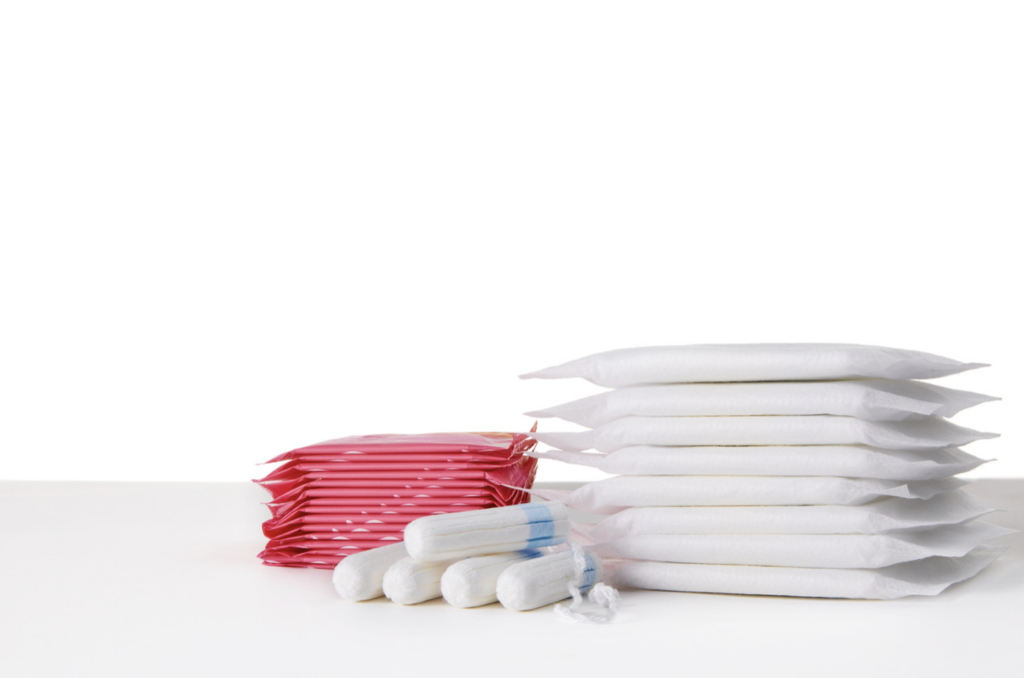In a bid to fight period poverty in the region, the Walloon government will be handing out 2.5 million sanitary pads for people in precarious situations from April onwards.
On the eve of International Women's Day, the government announced it would make available €440,000 for a pilot project in the provinces Namur, Hainaut and Liège together with the left-wing feminist movement Femmes prévoyantes socialistes (FPS) to combat period poverty, when people who need period products struggle to afford them.
"Wallonia is launching a vast pilot project to combat menstrual insecurity: from April, 2.5 million sanitary pads will be made available to women in precarious situations in these provinces and information will also be given," Walloon Health Minister Christie Morreale wrote on Twitter.
On average, women spend €12 euro on menstrual products every month, according to De VoorZorg. For women in precarious situations or those living in poverty, which amounts to some 350,000 women in Belgium, the burden of buying sanitary products can be an insurmountable cost and results in them having to choose between sanitary protection or food.
"This cannot be a burden on a woman's life, so we are going to help by proposing that pads be made available free of charge in planning centres, education centres, day shelters, night shelters and from social services," Morreale said.
Health risks and skipping school
A survey conducted by the feminist association Synergie Wallonie pour l'Egalité entre les Femmes et les Hommes showed that, of 4,133 women surveyed, 30% said they had financial difficulties in buying period protection, but only 4% of them turn to organisations that can help, as they feel menstruation remains a taboo subject.
Among younger people aged 12 to 25, one in eight cannot afford sanitary pads or tampons; for young people living in poverty, the figure is as high as 45%.
Aside from the practical inconvenience and the health risks, younger girls are also more likely to skip school during their period due to a lack of sanitary products.
Many women who can't afford sanitary products instead rely on other means during their periods, which can lead to infections and toxic shock syndrome.
The poverty risk in Wallonia is 18.2%. In Flanders, where this is 9.3%, period poverty is tackled by larger initiatives to combat poverty and is approached more integrally, rather than addressing each aspect separately, Health Minister Wouter Beke's spokesperson told The Brussels Times.
It does so by investing in the distribution of products to purchase relief goods for the food banks, which work more broadly than simply offering food products, and which respond to other needs such as menstrual products, and other hygiene products.
Scotland's historic decision
Scotland was the first country in the world to make sanitary products free for all – not just for people living in poverty. On 24 November 2020, Members of the Scottish Parliament (MSPs) unanimously approved the Period Products (Free Provision) (Scotland) Bill, which became an Act on 12 January 2021.
Under the Act, the government set up a nationwide scheme to allow anyone who needs period products to get them free of charge and gives the government the power to make schools, colleges and universities and other public bodies provide a range of period products for free.
The bill was introduced by MSP Monica Lennon, who argued that sanitary products are a basic necessity and that providing access to them is important for people's dignity.
"Periods should never be a barrier to education or push anyone into poverty. Women, girls and all people who menstruate deserve period dignity," Lennon said when the bill was passed.

